1619 – The ship Margaret, out of Bristol, England, landed 38 passengers at Berkeley Hundred (known then as Charles Cittie) in Virginia. The settlers celebrated a day of “Thanksgiving,” establishing the tradition two years and 17 days before the Pilgrims arrived aboard the Mayflower at Plymouth, Massachusetts.
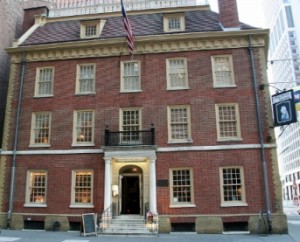
1783 – George Washington, then commanding general of the Continental Army, summoned his military officers to Fraunces Tavern in New York City to inform them that he was resigning his commission and returning to civilian life.
Although Washington had often during the war privately lamented the sorry state of his largely undisciplined and unhealthy troops and the ineffectiveness of most of his officer corps, he expressed genuine appreciation for his brotherhood of soldiers. Observers of the intimate scene at Fraunces Tavern described Washington as “suffused in tears,” embracing his officers one by one after issuing his farewell. Washington left the tavern for Annapolis, Maryland where he officially resigned his commission on December 23. He then returned to his beloved estate at Mount Vernon, VA, where he planned to live out his days as a gentleman farmer.
Washington was not out of the public spotlight for long, however. In 1789, he was coaxed out of retirement and elected as the first president of the United States, a position he held until 1797.
1816 – In an election that ran from Friday, November 1 to Wednesday, December 4, James Monroe of Virginia was elected the 5th President of the United States, easily defeating Rufus King of New York.
1867 – The National Grange of Husbandry was founded. The organization of farmers was known, typically, as the Grange. The group contributed to agriculture and served as a focus for rural social life in America.
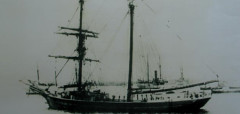
1872 – The Dei Gratia, a small British brig under Captain David Morehouse, spotted the Mary Celeste, an American vessel, sailing erratically but at full sail near the Azores Islands in the Atlantic Ocean. There was not a soul on board.
Captain Morehouse and his men boarded the ship to find it abandoned, with its sails slightly damaged, several feet of water in the hold, and the lifeboat and navigational instruments missing. However, the ship was in good order, the cargo intact, and reserves of food and water remained on board.
The last entry in the captain’s log shows that the Mary Celeste had been nine days and 500 miles away from where the ship was found by the Dei Gratia. Apparently, the ship had been drifting toward Genoa on her intended course for 11 days with no one at the wheel to guide her. The captain, his family, and the crew of the vessel were never found, and the reason for the abandonment of the Mary Celeste has never been determined.
1909 – The Montreal Canadiens, the oldest surviving professional hockey franchise in the world, was founded as a charter member of the National Hockey Association.
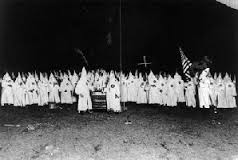
1915 – The second Ku Klux Klan was founded in 1915 by William J. Simmons at Stone Mountain, outside Atlanta. Its growth was based on a new anti-immigrant, anti-Catholic, prohibitionist and anti-Semitic agenda, which developed in response to contemporary social tensions. Most of the founders were from a small Atlanta-area organization called the Knights of Mary Phagan, who had organized around Leo Frank’s trial. The new organization and chapters adopted regalia featured in The Birth Of A Nation, a film which glorified the original Klan, which had ended in the 1870s.
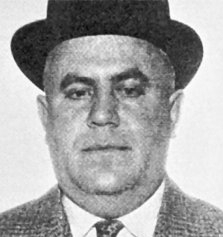
1928 – “Dapper Dan” Hogan, a St. Paul, Minnesota saloonkeeper and mob boss, was killed when someone planted a car bomb under the floorboards of his car. Doctors worked all day to save him – according to the Morning Tribune, “racketeers, police characters, and business men” queued up at the hospital to donate blood to their ailing friend – but Hogan slipped into a coma and died at around 9 p.m. His murder is still unsolved.
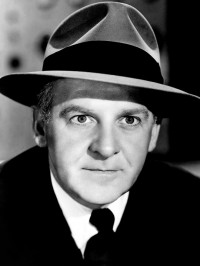
1932 – “Good evening, Mr. and Mrs. North and South America and all the ships at sea. Let’s go to press!” The Walter Winchell Show (later The Jergens Journal and still later, Kaiser-Frazer News), was first heard on the NBC Blue network. Winchell kept that gossip show going on the radio for 23 years.
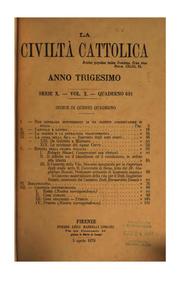
1941 – The Jesuit journal Civiltà Cattolica, published in Rome under strict Vatican supervision, reminded Catholics that the Jews were primarily responsible for murdering Jesus Christ and that Jews repeated this crime by means of ritual murder “in every generation.” It should be noted that the journal continued to publish slanderous remarks about the Jews even while they were being murdered en masse by German mobile death squads.
1945 – In an overwhelming vote of 65 to 7, the U.S. Senate approved full U.S. participation in the United Nations. The United Nations had officially came into existence on October 24, 1945, when its charter was ratified by China, France, the Soviet Union, the United Kingdom, the U.S. and a majority of other signatories. Senate approval meant the U.S. could join most of the world’s nations in the international organization, which aimed to arbitrate differences between countries and stem military aggression.
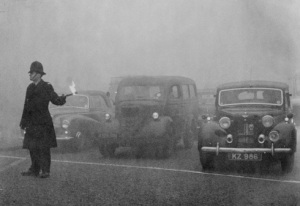
1952 – Heavy smog began to hover over London, England. It persisted for four days, leading to the deaths of at least 4,000 people. A high-pressure air mass stalled over the Thames River Valley. When cold air arrived suddenly from the west, the air over London became trapped in place. The problem was exacerbated by low temperatures, which caused residents to burn extra coal in their furnaces. The smoke, soot and sulfur dioxide from the area’s industries along with that from cars and consumer energy usage caused extraordinarily heavy smog to smother the city.
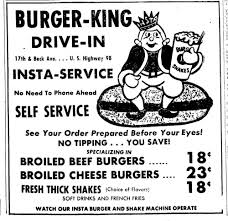
1954 – James McLamore and David R. Edgerton opened the first Insta-Burger King in Miami. As you can probably guess, the franchise name was later changed to Burger King.
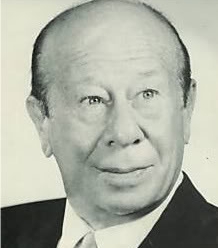
1967 – Actor Bert Lahr (appeared in many films and performed on Broadway but is forever remembered as the Cowardly Lion in The Wizard Of Oz) died of cancer at the age of 72.
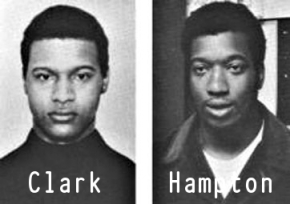
1969 – Black Panthers Mark Clark, 22, and Fred Hampton, 21, were gunned down by 14 police officers as they were sleeping in their Chicago apartment. About a hundred bullets had been fired in what police described as a fierce gun battle with members of the Black Panther Party. However, ballistics experts later determined that only one of those bullets came from the Panthers’ side. In addition, the “bullet holes” in the front door of the apartment, which police pointed to as evidence that the Panthers had been shooting from within the apartment, were actually nail holes created by police in an attempt to cover up the attack. Four other Black Panthers were wounded in the raid, as well as two police officers.
Despite the evidence provided by ballistics experts showing that police had fired 99 percent of the bullets and had falsified the report on the incident, the first federal grand jury did not indict anyone involved in the raid. Furthermore, even though a subsequent grand jury did indict all the police officers involved, the charges were dismissed.
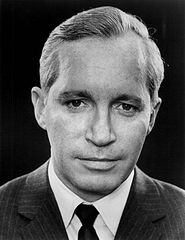
1970 – Frank Reynolds made his final appearance as co-host on the ABC Evening News with Howard K. Smith. Reynolds commented on the switch to a new co-host (Harry Reasoner) saying, “Due to circumstances beyond my control, the unemployment statistics rose yesterday.”

1971 – The Ulster Volunteer Force bombed McGurk’s Bar, a Catholic-owned pub in Belfast, killing fifteen Catholic civilians – including two children – and wounding seventeen more.
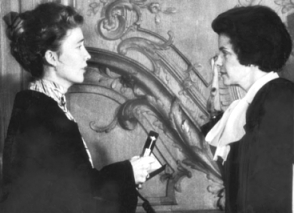
1978 – Dianne Feinstein became San Francisco’s first woman mayor when she was named to replace George Moscone, who had been assassinated.
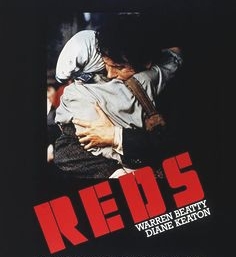
1981 – Reds, a movie about an American Communist and the Russian Revolution, written by, directed and starring Warren Beatty, premiered in U.S. theaters. The film, based on a true story, received 12 Academy Award nominations, including Best Picture, Best Actor (Beatty) and Best Actress and Best Supporting Actor for Beatty’s co-stars Diane Keaton and Jack Nicholson. Beatty took home an Oscar for Best Director.
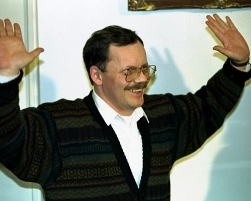
1991 – Islamic militants in Lebanon release kidnapped American journalist Terry Anderson after 2,454 days in captivity. As chief Middle East correspondent for the Associated Press, Anderson covered the long-running civil war in Lebanon. On March 16, 1985, he was kidnapped on a west Beirut street while leaving a tennis court. His captors took him to the southern suburbs of the city, where he was held prisoner in an underground dungeon for the next six-and-a-half years.
1992 – President George H. Bush ordered 28,000 U.S. troops to Somalia, a war-torn East African nation where rival warlords were preventing the distribution of humanitarian aid to thousands of starving Somalis. In a military mission he described as “God’s work,” Bush said that America must act to save more than a million Somali lives, but reassured Americans that “this operation is not open-ended” and that “we will not stay one day longer than is absolutely necessary.”
Unfortunately, America’s humanitarian troops became embroiled in Somalia’s political conflict, and the controversial mission stretched on for 15 months before being abruptly called off by President Bill Clinton in 1993.
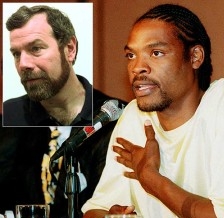
1997 – The National Basketball Association suspended Latrell Sprewell, three-time All Star point guard for the Golden State Warriors, for one year after he attacked Warriors’ coach P.J. Carlesimo. During practice on December 1, Sprewell had a verbal confrontation with Carlesimo when the coach told him to “put a little mustard” on a pass. When Carlesimo approached him, Sprewell grabbed the coach around the neck and began choking him, until he was pulled away by several other players and team officials. Told to leave practice, Sprewell returned within 20 minutes and threw a punch at Carlesimo before he was again pulled away.
Compiled by Ray Lemire ©2015 RayLemire.com. All Rights Reserved.